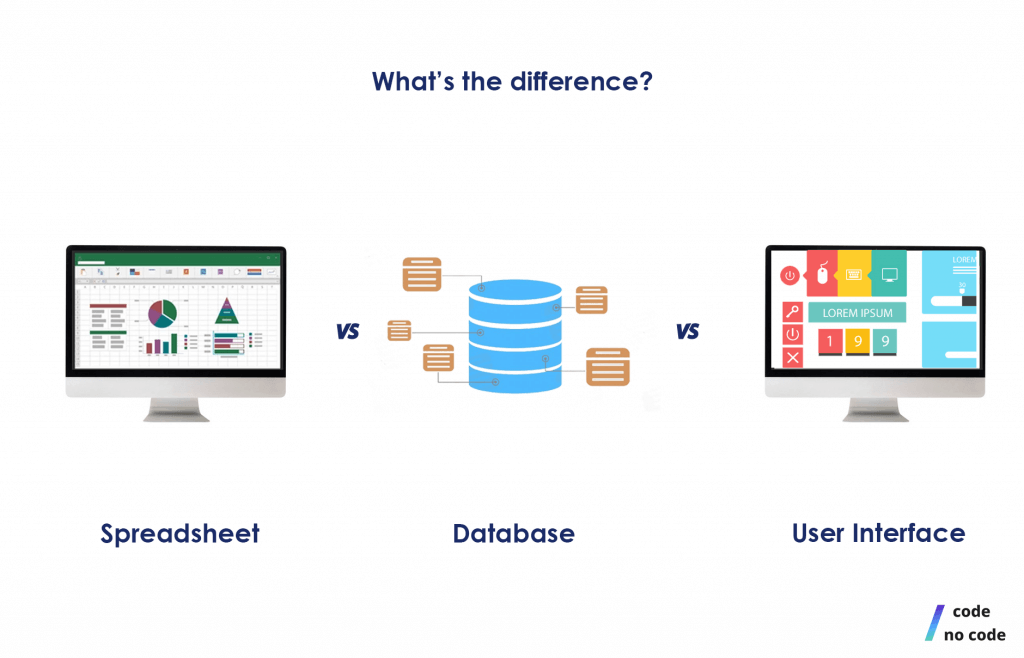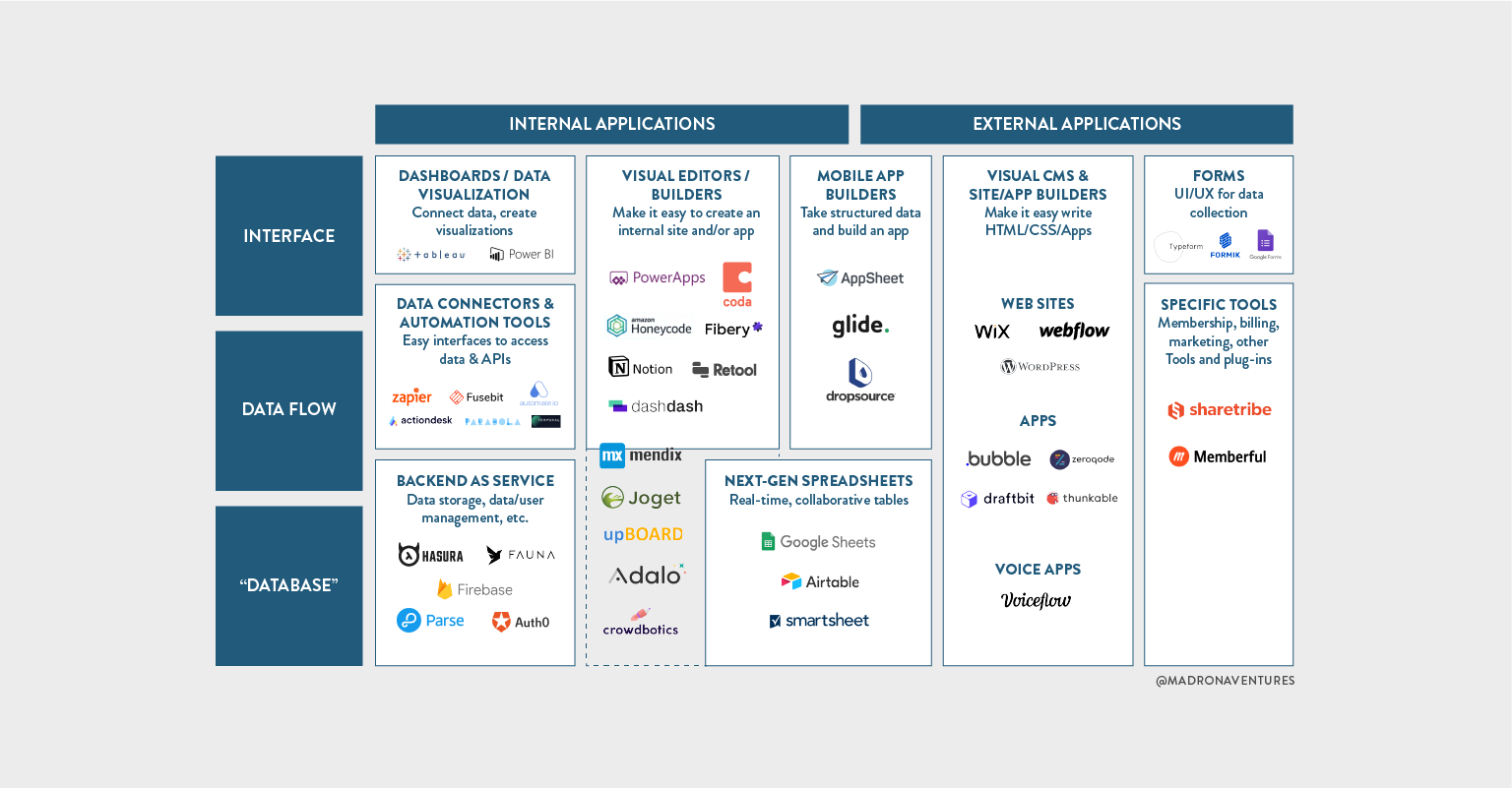Develop Open Platform Databases Easily with the very best No-Code Devices Available
Develop Open Platform Databases Easily with the very best No-Code Devices Available
Blog Article
Exploring the Benefits of Scalable Databases That Call For No Coding Skills for Efficient Information Management Solutions
The introduction of scalable data sources that remove the need for coding skills presents a transformative opportunity for organizations seeking effective information administration options. As we take into consideration the implications of such developments, it ends up being important to take a look at exactly how they can improve the landscape of information administration and drive lasting growth in a competitive atmosphere.
Improved Access for Customers
Boosted access for customers is a critical aspect of scalable databases, ensuring that information monitoring systems are user-friendly and instinctive. In a period where data-driven choices are vital, availability enables a broader variety of individuals, consisting of those without substantial technical expertise, to involve with data source systems properly. This democratization of information gain access to assists in boosted cooperation throughout divisions, empowering workers to make and draw out insights informed choices.
Easy to use interfaces, such as drag-and-drop features and aesthetic data depiction, streamline complex information communications. These enhancements lower the discovering curve related to standard database monitoring, allowing users to concentrate on leveraging data as opposed to grappling with technological complexities. Scalable databases often integrate personalized dashboards and real-time analytics, providing individuals with prompt insights tailored to their certain demands.

Cost-Effectiveness and Source Financial Savings
Effective information administration not just rests on accessibility yet likewise on cost-effectiveness and source cost savings. Scalable data sources developed for customers without any coding abilities dramatically lower monetary burdens generally connected with standard database administration systems. By eliminating the requirement for specialized shows know-how, organizations can designate their sources much more successfully, focusing funds on core service tasks instead of substantial training or hiring knowledgeable personnel.
Additionally, these data sources frequently use cloud-based solutions, which even more lower costs connected to equipment and upkeep. Organizations can scale their database services according to their demands, staying clear of the expenditures sustained from over-provisioning resources. This flexibility indicates organizations can adapt to changing demands without incurring unneeded prices, bring about substantial long-lasting cost savings.
In addition, straightforward interfaces improve data entrance and administration procedures, lowering the moment invested in administrative tasks. This efficiency equates right into labor price financial savings, permitting groups to concentrate on tactical efforts instead of regular upkeep. Generally, embracing scalable databases that need no coding abilities cultivates an extra cost-effective method to data administration, allowing organizations to maximize their resources while keeping high degrees of operational efficiency.
Improved Partnership Across Teams

Additionally, scalable data sources help with smooth interaction among staff member. With straightforward interfaces that call for no coding abilities, employees can quickly develop, customize, and share records or control panels tailored to their specific needs. This democratization of data equips non-technical customers to add understandings, enhancing the collaborative atmosphere.
Furthermore, these data sources sustain simultaneous accessibility, permitting numerous users to service the exact same dataset concurrently. This function improves performance, as groups can take part in joint information article evaluation without the threat of variation control problems. The capacity to leave notes or remarks straight within the data source additionally promotes dialogue and clarifies information interpretations.
Streamlined Data Management Processes
In today's data-driven setting, companies acknowledge the need of structured data management refines to maximize performance and precision. By leveraging scalable databases that require no coding abilities, services can simplify their information handling and decrease the complexities generally associated with traditional data source systems. This access equips non-technical users to involve directly with data, promoting quicker decision-making and minimizing reliance on specialized IT employees.
Structured data monitoring processes boost process by automating routine jobs such as data access, validation, and coverage. Automated data integration makes sure that information from numerous sources is accumulated perfectly, removing silos and promoting an unified sight of crucial organization metrics (no-code). User-friendly user interfaces permit workers to adjust data quickly, allowing them to generate understandings that drive critical initiatives without the requirement for comprehensive training.
This performance not only accelerates functional processes however additionally reduces the capacity for human mistake, ensuring that information remains trustworthy and exact. Ultimately, structured information management processes via scalable databases result in boosted performance, permitting organizations to concentrate on core activities while making sure that their information management practices are effective and efficient.
Scalability for Expanding Services

For increasing business, the capability to scale up or down is essential. A scalable database can handle an increase of information produced from new customers, items, or solutions, making sure that company operations continue to be undisturbed. Additionally, these databases provide the capacity to handle peak loads efficiently, which is crucial throughout periods of quick development or seasonal spikes.
Furthermore, numerous scalable database remedies are created with easy to use interfaces that need no coding skills, empowering non-technical team to handle data properly (no-code). This democratization of data management enables companies to assign sources strategically and lower reliance on specialized IT dig this employees
Ultimately, taking on a scalable database not only boosts operational effectiveness yet also fosters an atmosphere where businesses can innovate and progress without the restrictions of typical database systems. This versatility settings companies for long-term success in today's competitive landscape.
Verdict
In conclusion, scalable databases that require no coding skills give substantial advantages for reliable data management. By streamlining data monitoring procedures and using scalability for growing companies, such services enable companies to adjust to altering demands effectively.
Boosted access for customers is an essential facet of scalable databases, guaranteeing that information monitoring systems are straightforward and instinctive.Easy to use interfaces, such as aesthetic data and drag-and-drop attributes representation, simplify complicated data communications. In general, adopting scalable data sources that need no coding abilities promotes a more cost-efficient technique to data administration, enabling companies to maximize their sources while maintaining high degrees of operational efficiency.
By leveraging scalable data sources that require no coding abilities, businesses can simplify their information handling and minimize the complexities commonly associated with typical data source systems - no-code.Streamlined information administration procedures improve operations by automating routine jobs such as data entrance, validation, and coverage
Report this page